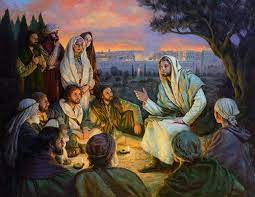The first followers of Jesus were called disciples. They were lifelong learners, whom Jesus gave an invitation and a challenge to, “Come follow me, and I will make you fish for people” (Matthew 4:19).
He was inviting them into a life-on-life relationship, and in the process, they would be challenged to become like him. During that time, they listened to his words, observed his works and saw a particular way and rhythm to his life. He demonstrated a passionate spirituality as he frequently would spend time in solitude praying to his Heavenly Father.
They experienced his deep desire for radical community as they ate together, reflected on what life in the Kingdom of God looks like, and collaborated on teachable moments. They witnessed his fervent missionary zeal and sacrificial servant’s heart as he reached out to a hurting world who desperately needed the healing, forgiveness, and hope of the Gospel that he embodied as the Savior of the world.
Jesus took sabbath seriously. He moved in Kingdom authority and power and consistently followed the leading of the Holy Spirit as he surrendered to the will of his Heavenly Father. The disciples realized that Jesus had a life that was worth imitating and they wanted what he had.
After three years of learning from their Lord, the resurrected Christ came to them and said, “All authority in heaven and on earth has been given to me. Therefore, go and make disciples of all nations, baptizing them in the name of the Father and of the Son and of the Holy Spirit, and teaching them to obey everything I have commanded you. And surely, I am with you always, to the very end of the age” (Matthew 28:18-20). The disciples were sent out on mission by Jesus to share with others his words, works and ways. Then the Holy Spirit fell on the day of Pentecost to empower them to make more disciples.
The early church lived into the rhythm they saw in Jesus as they devoted themselves to the apostle’s teachings, prayer, worship, and fellowship. They performed signs and wonders in his power and broke bread together as they continued to preach Christ boldly and without fear, despite tremendous persecution.
The Gospel was spreading all throughout the Mediterranean world through this powerful, Spirit-filled countercultural movement. The Christian population grew from a few thousand in 40 AD to 6 million by 300 AD. But then a cultural shift occurred in 313 AD with the Edict of Milan where Constantine declared that Christianity to be the religion of the empire.
Unfortunately, many people began to see themselves as “cultural Christians,” and the urgency of this countercultural movement began to wane. As time went on, the church started to mimic the culture, which resulted in a consumer mindset. Sadly, many churches in America have taken on a kind of country club mentality where people consume information and know facts about God without experiencing this God as real in our own lives.
Information does not equal transformation. Our identity can easily be found in our consumption of traditions, programs, rituals, routine, celebrity Christianity and the glory days of how things used to be, all to meet a need within ourselves that only Jesus can truly satisfy.
Are we more in love with the church or Jesus? Do we realize that the church exists not be served but to serve? Do we realize that choosing to follow in the way of Jesus will require a death to our selfishness, agenda, will, and interests, as we pick up our cross daily and cry out, “Not my will but yours be done” (Luke 22:42)?
This is the ancient way of discipleship. I believe God is calling many of us to repent and return to our first love. A prophetic call is going out from Jeremiah 6:16, “This is what the Lord says: Stand at the crossroads and look; ask for the ancient paths, ask where the good way is, and walk in it, and you will find rest for your souls.” May we choose the ancient path of discipleship and cultivate the passionate spirituality, radical community, and missionary zeal modeled for us in Jesus as we ride the wave of the Holy Spirit into the future God has in store for all of us.

